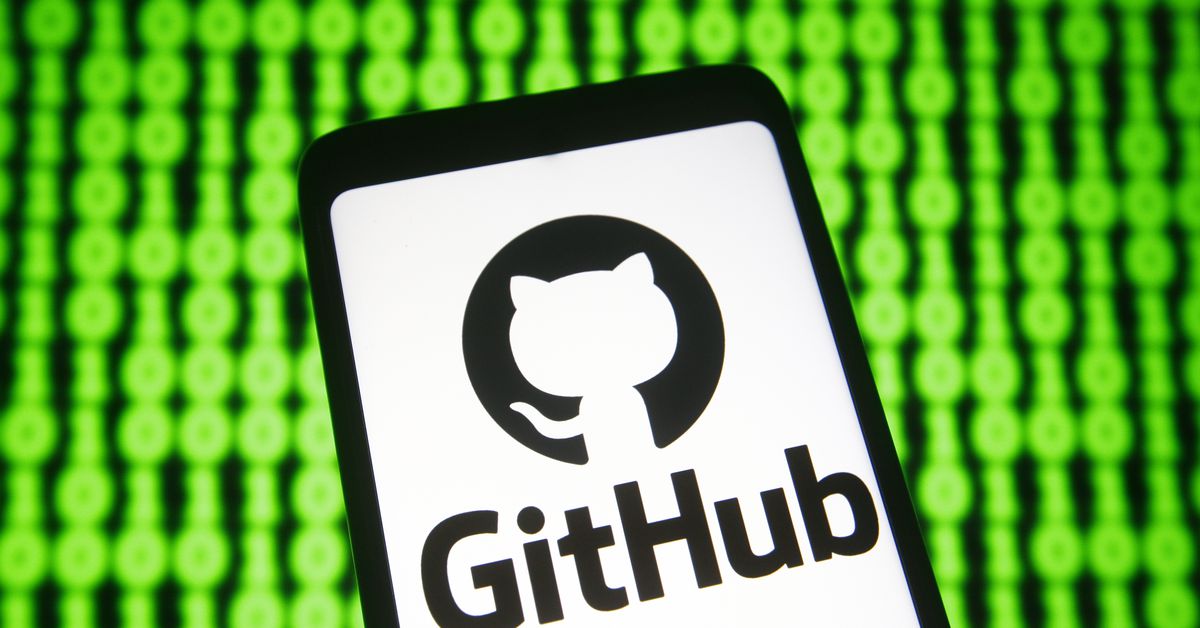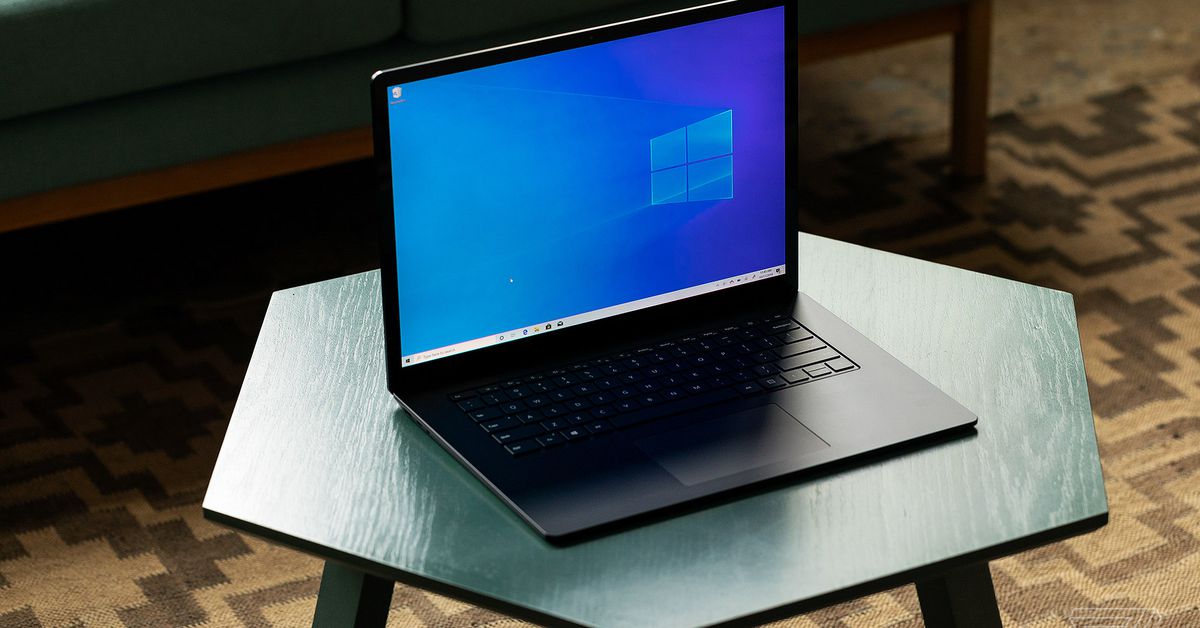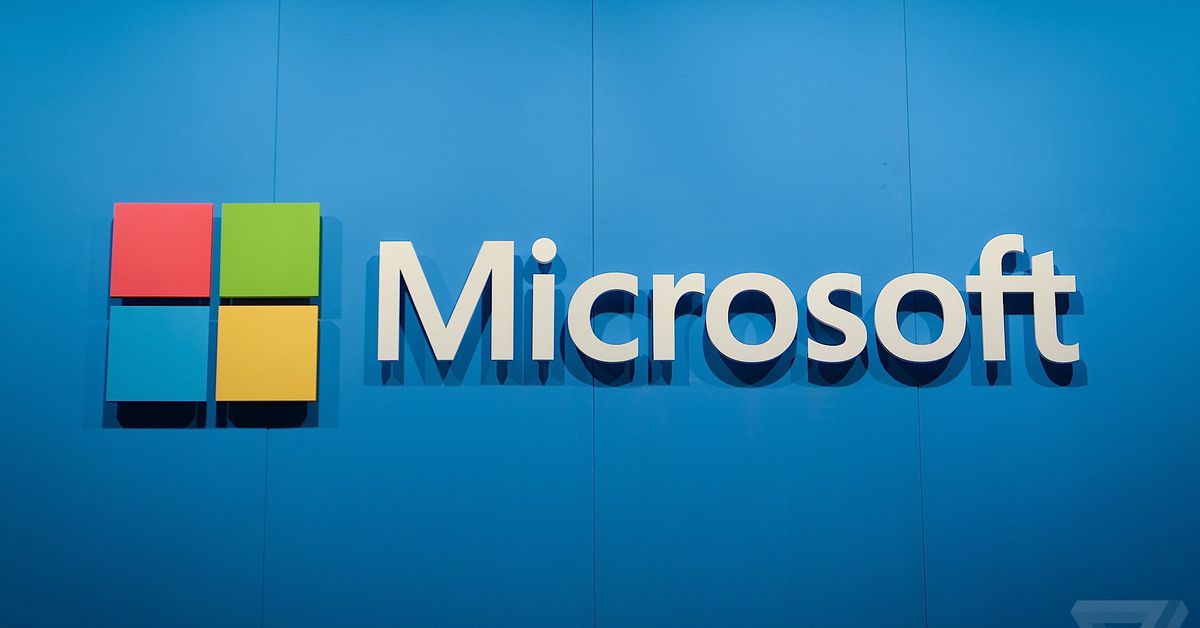Simply days after GitHub introduced its new Copilot software, which generates complementary code for programmers’ tasks, net developer Kyle Peacock tweeted an oddity he had observed.
“I like to study new issues and construct issues,” the algorithm wrote, when requested to generate an About Me web page. “I’ve a <a href=“https://github.com/davidcelis”> Github</a> account.”
Whereas the About Me web page was supposedly generated for a pretend particular person, that hyperlink goes to the GitHub profile of David Celis, who The Verge can verify isn’t a figment of Copilot’s creativeness. Celis is a coder and GitHub person with fashionable repositories, and even previously labored on the firm.
“I’m not shocked that my public repositories are part of the coaching information for Copilot”
“I’m not shocked that my public repositories are part of the coaching information for Copilot,” Celis informed The Verge, including that he was amused by the algorithm reciting his title. However whereas he doesn’t thoughts his title being spit out by an algorithm that parrots its coaching information, Celis is anxious on the copyright implications of GitHub scooping up any code it might discover to raised its AI.
When GitHub introduced Copilot on June 29, the corporate stated that the algorithm had been educated on publicly obtainable code posted to GitHub. Nat Friedman, GitHub’s CEO, has written on boards like Hacker Information and Twitter that the corporate is legally within the clear. “Coaching machine studying fashions on publicly obtainable information is taken into account truthful use throughout the machine studying neighborhood,” the Copilot web page says.
However the authorized query isn’t as settled as Friedman makes it sound — and the confusion reaches far past simply GitHub. Synthetic intelligence algorithms solely perform resulting from large quantities of knowledge they analyze, and far of that information comes from the open web. A simple instance could be ImageNet, maybe probably the most influential AI coaching dataset, which is completely made up of publicly obtainable pictures that ImageNet creators don’t personal. If a courtroom had been to say that utilizing this simply accessible information isn’t authorized, it might make coaching AI programs vastly costlier and fewer clear.
The main points change when an algorithm generates media of its personal
Regardless of GitHub’s assertion, there is no such thing as a direct authorized precedent within the US that upholds publicly obtainable coaching information as truthful use, in line with Mark Lemley and Bryan Casey of Stanford Regulation Faculty, who revealed a paper final 12 months about AI datasets and truthful use within the Texas Regulation Evaluation.
That doesn’t imply they’re in opposition to it: Lemley and Casey write that publicly obtainable information must be thought-about truthful use, for the betterment of algorithms and to evolve to the norms of the machine studying neighborhood.
And there are previous circumstances to assist that opinion, they are saying. They take into account the Google Books case, by which Google downloaded and listed greater than 20 million books to create a literary search database, to be much like coaching an algorithm. The Supreme Courtroom upheld Google’s truthful use declare, on the grounds that the brand new software was transformative of the unique work and broadly useful to readers and authors.
“There may be not controversy across the potential to place all that copyrighted materials right into a database for a machine to learn it,” Casey says concerning the Google Books case. “What a machine then outputs continues to be blurry and going to be discovered.”
This implies the main points change when the algorithm then generates media of its personal. Lemley and Casey argue of their paper that if an algorithm begins to generate songs within the model of Ariana Grande, or straight rip off a coder’s novel resolution to an issue, the truthful use designation will get a lot murkier.
Since this hasn’t been straight examined in a courtroom, a choose hasn’t been compelled to resolve how extractive the know-how actually is: If an AI algorithm turns the copyrighted work right into a worthwhile know-how, then it wouldn’t be out of the realm of chance for a choose to resolve that its creator ought to pay or in any other case credit score for what they take.
However alternatively, if a choose had been to resolve that GitHub’s model of coaching on publicly obtainable code was truthful use, it could squash the necessity for GitHub and OpenAI to quote the licenses of the coders that wrote its coaching information. As an illustration, Celis, whose GitHub profile was generated by Copilot, says he makes use of the Inventive Commons Attribution 3.0 Unported License, which requires attribution for by-product works.
“And I fall within the camp that believes Copilot’s generated code is totally by-product work,” he informed The Verge.
Till that is determined in a courtroom, nonetheless, there’s no clear ruling on whether or not this follow is authorized.
“My hope is that folks could be joyful to have their code used for coaching,” Lemley says. “Not for it to indicate up verbatim in another person’s work essentially, however we’re all higher off if we’ve better-trained AIs.”




